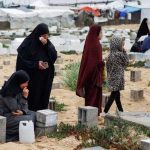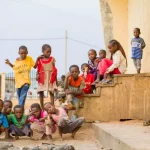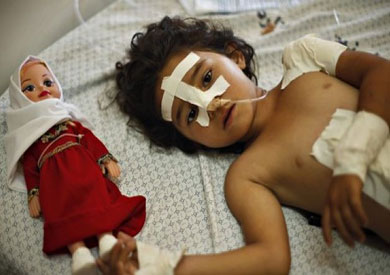Tess Ingram, spokeswoman for the United Nations Children’s Fund (UNICEF), said that the children of Gaza are stuck in successive and continuous conflict and trauma without any safe place to which they can turn. She warned of the repercussions of this on their physical health, development, and also their mental health in the long term.
This came during an interview conducted by UN News with Tess Ingram, who is currently in the city of Rafah, south of Gaza. Ingram said she sees “glimpses of hope” in the Strip through the strength of the community spirit among residents there despite the terrible conditions they face.
She told us the story of the little girl, Juri, whose grandfather’s house in the city was bombed while she was visiting them and playing with the birds. The house was blown up along with its family, and the 9-year-old girl suffered multiple fractures and serious wounds that cannot currently be treated in Gaza. 16 days after that incident, Juri is still in the hospital and her wounds are still open. Ingram stressed that the killing and wounding of children can only be “ended through a ceasefire.”
The UNICEF spokeswoman stressed that there is still an opportunity to stave off famine in Gaza, if the Strip is “flooded with aid,” but humanitarian access, especially to the north, is still severely restricted, as she saw for herself when the car in which she was traveling with her colleagues was hit. Shooting occurred while she was waiting to be allowed to bring aid into the area.






